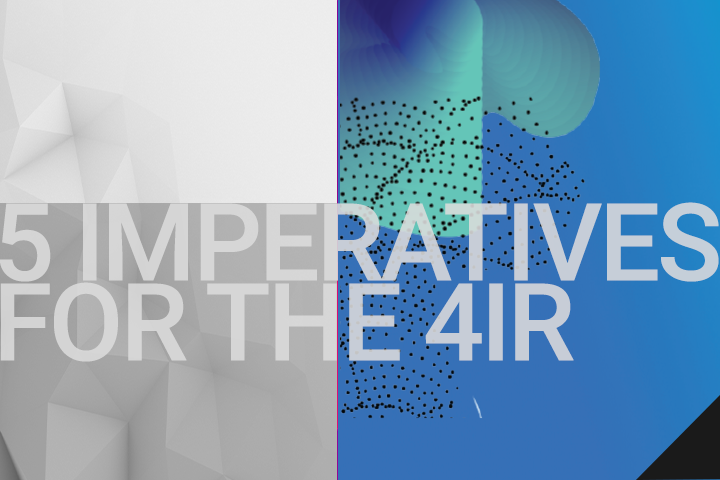3 min read
LDS On: Mergers & Acquisitions in the Age of Uncertainty
In this episode of “LDS On,” CEO Mimi Brooks examines how the booming 2021 M&A marketplace offers companies a unique opportunity to create...
In this episode of “LDS On,” CEO Mimi Brooks presents five principal reasons for initiating new social contracts with workers. This is a segment extracted from a recent presentation Brooks delivered at the Human Resource Executive Health Benefits and Leadership Conference in Las Vegas in April 2022 and is inspired by LDS’ work with market leaders as they’ve transformed their operating models and redesigned their relationship with workers to create organizations fit for their digital futures.
It’s not easy to transform organizations from the inside out.
To lead with Culture. To prioritize workers and customers as equal stakeholders. To experiment, incubate, and innovate new employment strategies that anticipate the changing needs of a 4th industrial revolution workforce.
And to do that in the midst of a global pandemic, with at least a partially remote workforce is even more impressive.
For last couple of years, my team has had the pleasure of working market leaders as they’ve been transforming their operating models and redesigning their relationship with workers to create an organization fit for their digital future.
So this is LDS On…Redesigning our Social Contracts with Workers. Let’s get started…
Tom Kochan said it perfectly in his 2021 Book, Shaping the Future of Work, when he reminded us that most of our employee strategies and policies are left over from the prior industrial revolution – and modernizing them would be a pre-requisite to building an economy and world of work where all can prosper.
Rewriting our social contracts with workers is part of the mega-shift already underway as we’re tackling the critical job of redefining the very purpose of our corporations (why they exist; who they serve; how they give back; how they clean up after themselves and on what timetables; how they contribute to social harmony and unwind practices of inequality; and how they shape better, safer, more satisfying, and creative human work).
If we asked why we need to rewrite our social contracts now, we could say that its simply and critically the right time, right place, and the right thing to do. But here are 5 more specific reasons…
We are already 10-12 years into the 4th industrial revolution. Most companies are out of the first wave that was about buying digital with the expectation of becoming digital. We’re learning in the second wave that Culture and Purpose drive new ways of working; that People with diverse ideas and perspectives are the basis of innovation and growth strategies; and advanced digital technologies will continue to accelerate in non-linear and combinatorial patterns as we race into our digital futures. And as we face the oncoming third wave of digital transformation – Industrial Innovation – we know that much of this disruptive change is still ahead of us.
If we’re not leaning into organizational change now, we’re probably already behind.
COVID taught us with certainty that we must design, build, and continuously improve our digital workplace, with the augmented worker at its center. Here, Change is an organizational capability. Speed, Quality and Value replace Time, Scope, and Cost. In the new digital workplace, human work is naturally more ambiguous; teams are small, cross-functional, and cross-cultural; and our worker experiences are dataful and learn on the fly. To support this digital workplace, policies must be rationalized and simplified; data needs to be transparent, clean, and secure; project-based and gig workers need access to many of the critical tools and insights afforded employees, vendors need to open their systems and platforms for seamless ecosystem integration to create our Employee Experience hubs, and so on.
New social contracts are an underpinning to enabling the digital workplace.
On the heels of COVID, we’ve experienced the great resignation. We know that to attract and retain the best talent in this post-pandemic environment, we’ll need to bring workplace practices into the 21st century. Engaging workers in work redesign; building an educational ecosystem to reskill and upskill the workforce so workers are augmented and not out’ed. Fostering work environments that encourage and reward innovation and experimentation. Enhancing internal mobility and offering flexibility to workers to deal with family priorities and so on… These are just a few of the worker policies and programs we’re likely to prioritize, as engaging a decentralized workforce in a tight labor market continues to challenge.
Best to not be late or last in sunsetting outdated work practices. Rigid hierarchies or structures, dominant siloes, leader-led decision making, even culture that is soured by entrenched thinking, old methodologies or obsolete ideas are all drags on new value and growth models…and disenfranchise workers who want to feel a shared purpose and like mindset with the company they’re a part of.
This brings me to my last point…modern social contracts are essential now with a diminishing workforce who are motivated by novel and inspiring work practices. To be successful, we’ll need to design Agile and Accountable organizations that are flatter and more team-based and fluid in structure. We’ll need to find novel ways to connect a diverse workforce often formed through disruptive events like M&As or divestitures, or extreme staff turnover.
And, we’ll need to build flexible environments that adapt and thrive in continual change.
As we face the incoming 3rd wave of digital transformation, the redesign of our Institutions and Organizations will be central to realizing our growth strategies. We’re already behind in many of our related environmental, social, and governance goals — the clock is ticking and the stakes are high. At LDS, our purpose and passion is to ready the workforce for the work of tomorrow by designing the organizations that will be the modern workplaces for future generations. It’s time – it’s past time – to rewrite these contracts and set the stage for elevating our human talent and ensuring their viability in our digital age organizations.

3 min read
In this episode of “LDS On,” CEO Mimi Brooks examines how the booming 2021 M&A marketplace offers companies a unique opportunity to create...

4 min read
Recommended Pre-Read: This piece builds on concepts discussed in our POV "5 Lessons Learned in the First Wave of the 4th Industrial Revolution." ...

2 min read
Three major business challenges exist today. These are ensuring the benefits of human development are equitably realized, managing the externalities...